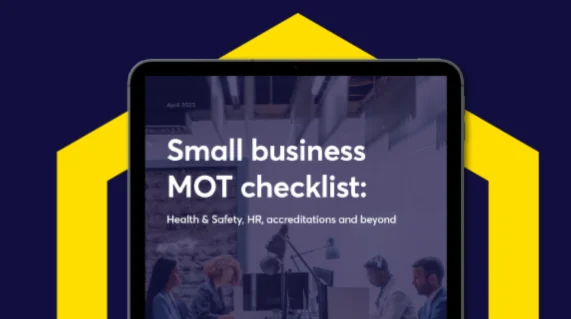Employment contracts: free template
The aim of this guide is to explain what the legal requirements are for employment contracts, how to make sure it is effective and what different types of contract staff can be engaged on.
The legal requirements
In April 2020 the law change in relation to written particulars of employments. From this date, the particulars must be provided on or before the first day of employment and must include some additional information including:
- Greater clarity on working hours
- Details of any probationary period
- Details of any entitlement to paid leave other than holiday or sick pay (such as maternity, paternity or compassionate leave)
- Details of any other benefits the employee is entitled to
- Details of any training entitlement or requirements
Our free template contract has been updated to reflect these new requirements.
Every employee must be given certain contractual information in writing within the first 8 weeks of employment including place of work, rate of pay, holiday leave and sick leave, disciplinary and grievance procedures, pensions and notice provisions. These are called written particulars of employment or a Section 1 statement.
Failure to provide this information can result in additional compensation being awarded (two or four weeks’ pay) at any Employment Tribunal hearing.
In addition to the prescribed information, if you want the benefit of certain other contractual terms you need to ensure they are in writing and agreed by the employee. These include the right to make deductions from the employee’s wages (e.g. for loss and damage to company property, recovering holiday pay) and the right to implement short term working or lay-offs in the case of a downturn in work. The best way to implement these terms is in the initial contract of employment.
Implementing such clauses can give the business flexibility to deal with problematic situations and help avoid expensive breach of contract claims.
Making your contract of employment effective
There is no one size fits all for employment contracts. Although several terms and conditions may be standard across your business or even an industry the type of employment, nature of the business, seniority and much more will impact on the types of clause you need and the way they are drafted.
For example, restrictive covenants can be imperative to protect your business interests for senior employees or those who deal with clients as part of their role, but not for junior employees or those who do not have interactions with clients. Similarly, such clauses are vital in industries where repeat business and client loyalty is essential to success (insurance, hair and beauty, car mechanics) but not where customers will use a range of businesses for the same thing (restaurants and bars, high street retail).
The type of employment will also be significant when producing the employment contract. For example, a contract for a director (usually called a Director’s Service Agreement) would be more onerous and wide-ranging than that of a waiter on minimum wage. Or the terms relating to holiday entitlement and pay will be different for a full-time salaried employee compared to a worker on a casual contract.
Taking some time to consider the nature of the employment (and seeking professional assistance) can ensure that a suitable contract is put in place at the outset, saving money and time later on.
Types of employment
Employment can take many forms and it is important the contract properly reflects the chosen type of employment:
Permanent or fixed-term employment
A permanent employment relationship will continue indefinitely but can be terminated with notice (although consideration must be given to unfair dismissal rights). A fixed-term contract will automatically terminate on the completion of event or on a certain date, and this must be provided for by the contract. The contract may provide for earlier termination and will only be renewed with the agreement of both parties.
Full time or part-time employment
Regulations provide that part-time workers doing the same work as full-time employees should be on the same terms and conditions. However, certain entitlements will have to be calculated pro-rata, such as holiday leave, and it is important the contract makes suitable provision for this, for example, how are public holidays incorporated into holiday entitlement if the employee does or doesn’t normally work on Mondays?
Regular or irregular hours
Calculating holiday entitlement, sick pay etc. becomes even more difficult where the employee works different numbers of hours each week and again the contract should take account of this. If there are no guaranteed hours of work then it is probable that the company would want the member of staff to have the status of “worker” rather than “employee” and again it is important the contract reflects this.
Employment contracts for your business
HS Direct has produced a range of employment contract templates for use with different types of employees from directors to zero-hour workers. Each contract contains clauses bespoke to that type of employee, making it easy for you to put in place suitable terms and conditions for each and every member of staff. We are also happy to review your existing contracts to ensure they are up to date and suitable for your business. Call us on 0114 241 7092 for more information.





